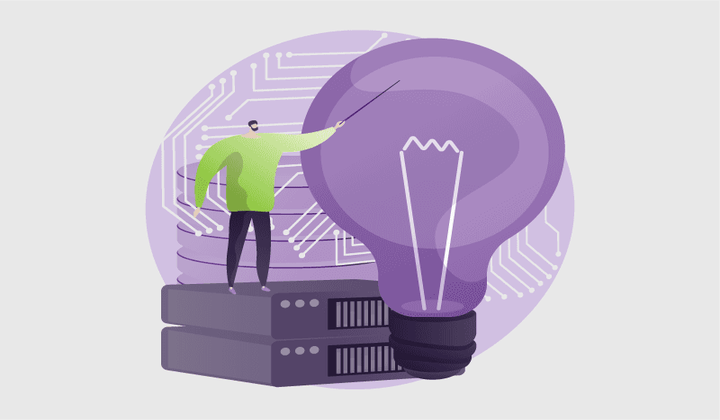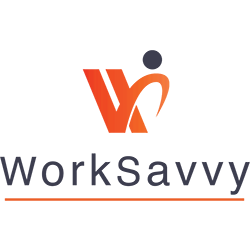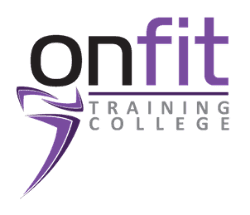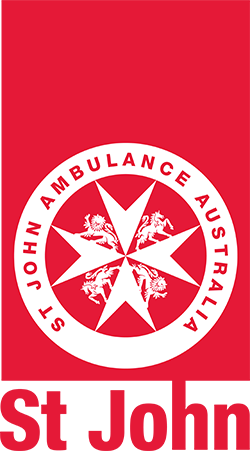Data Analysts: What Do They Do, and Why Are They In Demand?
Published on March 30, 2021
Data analysts make it make sense. Make what make sense, you might ask? Well… everything.
From numbers, to words, to images, almost anything can be considered data. Data analytics is a type of data science that aims to find the patterns, correlations or relationships in the data and analyse their meaning. They then use these insights to answer some big questions and inform some big business decisions.
What is data analysis?
Data-driven analytics is becoming increasingly important across all industries. Why? It allows companies to make more informed decisions. These decisions are based on the insights data analysts deduce from large sets of raw data, that otherwise would be pretty useless to the untrained eye.
“Put as simply as possible,” says data analyst Jesse Peterson, “The role of a data analyst is to take abstract information and transform it into usable information.”
A data analyst’s work can:
- Help create targeted content to the right customer group
- Optimise productivity and opportunities for improvement
- Ensure more objective decision-making takes place
- Help people innovate and explore with purpose
Data analyst responsibilities
“Data analysts take endless rows of seemingly random dates, numbers and dot points, then convert them into easily readable forms, such as graphs, charts, tables and dashboards,” Jesse explains.
To break it down a little more, the data analysis process generally follows these five steps:
Identify
Collect
Clean
Analyse
Report
1. Identify the data, define the question
What question are you trying to answer? What do you need to ask to make sure the right data is chosen to answers questions like:
- What are we doing well?
- What are we doing poorly?
- What are our opportunities for improvement?
- What trends are we seeing?
- Why has x changed?
2. Collect the data
Data collection can occur via a wide range of places, however, some common sources include:
- Surveys
- Website visitor tracking
- Buying datasets from collection specialists
3. Clean the data
Although often very accurate, computers aren’t perfect, so, cleaning data is essential. This means sifting through large datasets and making sure only relevant information remains.
4. Analyse the data
There are four main types of data analyses methods that you’ll use throughout your data analyst career:
- Descriptive
Describes the features of the data set so you can better understand how you should move forward.
- Diagnostic
Helps you find out why something has happened —- what are the correlations between values in the data
- Predictive
Uses past data trends to understand current or possible future trends in the data. Predictive analytics uses techniques from data mining, such as using data models, algorithms and machine learning techniques to make predictions about possible future events. - Prescriptive
Informs future decisions and course of action based on the trends found in the data. Often, this is reached with the help of machine learning techniques.
5. Report the results to stakeholders
Now that you have found the answers or at least, possible answers to the questions you defined in step one, you need to report it. This means putting your analyses into an understandable format so you can inform all and any stakeholders of your findings and advise them on how to move forward.
A day in the life of a data analyst
Jesse executes on these responsibilities in his day-to-day role in a marketing company:

A normal day in my life as a data analyst is going to be broken up into three key activities: briefing, research and presentation.
The first of these activities, briefing, is the simplest. I meet with a co-worker or stakeholder who has a question that they would like answered. Perhaps they would like to know how effectively our business appeals to different demographics, or perhaps they would like to know-how innovations in our business are being received by our clients.
Regardless of what it is, they have an abstract question, and my role is to take this abstract question, break it down and devise a way to answer it empirically using data.
This brings me to the second activity, research, which takes by far the largest amount of my time. I obtain all relevant data to the question at hand, then use my skills, knowledge and technology to break down this data and find out what it is really telling us.
Finally, the most often overlooked — yet extremely important — step: presentation. Improperly presented data can be misleading and deceiving. So, I work to present the data and my findings in a way that is as clear, concise and accurate as possible.
When this is ready, I once again meet with the one who initially came to me with the question. I explain my findings and do everything in my power to answer their initial question.
What do data analysts do in different industries?
Data analysts can work in a range of environments. Like any role, a data analyst’s job description will change depending on which industry you work in and whether you’re an entry-level or senior data analyst. Each industry will have its nuances, its challenges, and specific flow of operations.
Though used to mainly work in investment banks and private equity firms. But now that data is a valuable resource in almost all Australian industries, you can find them working in:
- Marketing
- Healthcare
- Retail
- Insurance
- Technology
Some unique and exciting data analyst career opportunities include:
Business intelligence analyst
A business analyst mostly works with data metrics related to business activities, such as:
- Sales
- Revenue
- Customer engagement
- Market information
You’ll focus on improving a business’ market activities and boosting their revenue, while growing authentic customer engagement. You’ll report your findings to key stakeholders so they can make informed business decisions.
Operations analyst
You’ll most likely be a part of a company’s operations team, and work closely with the operations manager. You’ll focus on finding data-informed strategies to help improve workflow and efficiency of internal business operations.
Transport Logistics Specialist Data Analyst
Here, you’ll use your data analyst skills to optimise how a business can store, transport and deliver large scale quantities of goods.
You’ll be relied upon to find the best paths and methods for products to be delivered, avoiding and problem-solving logistical nightmares like bottlenecking.
Medical and healthcare analyst
In this industry, you’ll work with medical data management systems to compile health care data. This data can be from a medical clinic’s expenses through to patient diagnoses. You’ll be in charge of controlling expenditure, finding ways to assist in providing optimal health care and improving patient experiences.
Data analyst skills
Being a good data analyst means you’ll need a strong blend of both hard and soft skills.
Your technical knowledge is essential to complete the analysis aspect of the role. Some critical skills you’ll need to have under your belt include:
- Using database tools such SQL and Microsoft Excel
- Understanding programming languages like Python or R
- Data visualisation through programs like Tableau or Jupyter Notebook
- A firm grasp of higher level maths and statistics
This is because you’ll be expected to present and justify your work to key stakeholders in an understandable and effective way. You’ll also want to develop strong:
- Critical thinking techniques
- Problem-solving skills
- Analytical skills
Who suits this kind of role?
“A person who enjoys a bit of number crunching, who prefers to work independently, and comes at problems with a critical eye” Jesse says.
However, he also warns that, “Trying to understand all types of information that are being collected can be overwhelming, let alone finding and extracting the very specific data you need.”
A hot tip from Jesse for all budding data analysts (no matter the industry) is to befriend your company’s data engineer ASAP — “They will be your greatest resource in understanding what data is being stored.”
Best Online Data Analytics Courses: Which One Is Right for You?
Interested in learning more about how you can take the next step to your new career as a data analyst? Discover which online data analytics course can help you start your career.
Training.com.au has a wide range of online courses from Australia’s top education providers that can get you ready to leap into this thriving industry.
Browse Data Science Results
Bachelor of Football (Development, Management and Performance) (NSW Only)
This is Australia’s first Bachelor degree of Football! A unique and specialised degree that equips you with the skills, knowledge, and understanding to prepare for a diverse range of careers in the football industry. This degree explores a range of foo...
Associate Degree of Football (Development, Management and Performance) (NSW Only)
The Associate Degree of Football (Development, Management and Performance) will prepare you with the skills, knowledge and understanding for a diverse range of future career paths in the football industry. Study how the football industry (e.g., soccer,...
Certificate III in Individual Support (QLD only) CHC33021
Our CHC33021 Certificate III in Individual Support prepares workers for providing tailored support to individuals in community and in residential environments, considering their unique needs and exercising professional judgement. This role builds accou...
Certificate III in Individual Support (QLD only) CHC33021
Our CHC33021 Certificate III in Individual Support prepares workers for providing tailored support to individuals in community and in residential environments, considering their unique needs and exercising professional judgement. This role builds accou...
Bachelor of Sports Coaching (Management) (NSW Only)
The Bachelor of Sport Coaching (Management) is a specialised degree that incorporates a strong focus on building coaching experience and management expertise. The result is a flexible foundation to build upon the key competencies appropriate to highly...
Certificate III in Individual Support (Ageing & Disability) (SA Only) CHC33021
The Certificate III in Individual Support (Ageing & Disability) prepares you to work across two essential areas of the care sector—aged care and disability support. This dual qualification builds practical skills and compassionate approaches to del...
Associate Degree of Sport Business (NSW Only)
Get a higher education qualification in two years when studying full-time! Based on the Bachelor of Sport Business in terms of content, the Associate Degree of Sport Business offers students the opportunity to get into the workforce quicker or alternat...
Diploma of Project Management (VIC, NSW, QLD & SA Only) BSB51415
Grow your passion and love of achieving goals using your knowledge, skills and managing teams with our Diploma of Project Management (BSB51415). Further develop your professional project management skillset and learn the methods, techniques and tools r...
Certificate IV in Building and Construction (Building) CPC40120
If you are an aspiring or working tradesperson, our building and construction certificates are your foundation for success. This is your first step towards starting your own building business and preparing for the builders registration. We understand t...
Certificate IV in Plumbing and Services CPC40920
This program covers the skills and knowledge for the following plumbing license categories in Victoria: Gas Fitting Work, Drainage Work, Sanitary Work, Water Supply Work, Roofing (Stormwater) Work, Type A Appliance Conversion Work and Type A Appliance...
Certificate III & IV in Fitness (Bundle) SIS30321,SIS40221
Launch your new career with the SIS30321 – Certificate III in Fitness & SIS40221– Certificate IV in Fitness! With everything you need to start your career off on the right foot, this all-in-one package will prepare you for your successful PT career...
Certificate IV in Fitness SIS40221
The SIS40221 – Certificate IV in Fitness qualifies you to become a Personal Trainer! Studying the Certificate IV in Fitness provides you with real tangible skills to make your passion for fitness your dream career. With no compromise between the practi...
Bachelor of Cyber Security (VIC, NSW, QLD and WA Only) CRS1401441
The Bachelor of Cyber Security offered by AIBI Higher Education is a technical course designed to prepare students for entry-level roles leading to an exciting career in Cyber Security. Students will first learn the foundations of information technolog...
Bachelor of Sport Business (Leadership)
Turn your passion for sport into a career by immersing yourself in a degree that will broaden your theoretical and technical knowledge, so that you are fully equipped fora management role within the sport industry. The Bachelor of Sport Business (Leade...
Certificate IV in Leadership and Management (VIC Only) BSB42015
This program provides participants with the essential knowledge and skills to undertake management positions. This includes assuming responsibility for their own performance, providing leadership, guidance and support to others. Develop the knowledge a...
Certificate III in Non-Emergency Patient Transport (VIC Only) HLT31120
Our Promise We are confident in the delivery of our training. On successful completion of the course, graduates will be guaranteed a telephone interview for vacant Patient Transport Officer positions in the Non-Emergency Patient Transport division. So...
Accounts Administration & Payroll Certificate Plus Xero & MYOB
Take the right path to fast track your career. You’re well on the road to success once you have this course under your belt. You’ll become a professional accounts administrator where you’ll learn how to balance the books, prepare BAS returns and busine...
Bachelor of Education (Physical & Health Education) (NSW Only)
The Bachelor of Education (Physical & Health Education) incorporates units in movement and health as well as curriculum and pedagogical studies, equipping you with the requisite skills for entering the teaching profession. If you are keen to pursue...
Bachelor of Sports Coaching (Strength and Conditioning) (NSW Only)
To address the high demand for sport coaches and professionals in Australia, the Bachelor of Sport Coaching (Strength and Conditioning) is a specialist degree fostering the coaching, administrative, and professional skills necessary for a fulfilling ca...
Certificate IV in Youth Work CHC40421
Our nationally recognised CHC40421 Certificate IV in Youth Work is designed to kick start your career in community services. Become a highly valued employee and learn the skills and knowledge you need to support and empower young people at risk. Unlock...
Online courses also available
Latest Articles
The Future of Counselling Jobs in Australia
Thinking about a career in counselling? You might wonder—is it a good career choice right now? Will...
How to Get Your Counselling Accreditation and Registration
Embarking on a counselling career in Australia offers a fulfilling opportunity to support people in...
What Are Counselling Microskills?
Microskills are fundamental communication techniques used to build rapport, actively listen, and gui...
Want to read more?
Selection Criteria Responses: Teacher Examples
Need a few examples of selection criteria examples for teachers? These three examples will help you...
Becoming a Teacher’s Aide: Everything You Need to Know
Working with children as a teacher's aide is an incredibly rewarding experience. Becoming a teacher'...
Agriculture Careers: What You Should Know in 2025
As one of Australia's most important industries, the agriculture industry offers great career opport...













